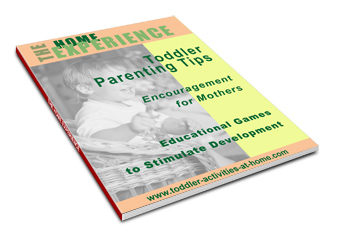Ignoring Problem Behaviour And Why It Could Work
Most experts (and many parents) agree that ignoring problem behaviour in toddlers is one of the best ways to get them to behave better.
This may go against the grain for you, and feel unnatural.
Standing up for yourself and ‘not taking any nonsense’ are seen as signs
of strength, especially for women.
Ignoring problem behaviour is a specific toddler discipline strategy.
It is very different from sticking your head in the sand and hoping
your child will stop playing up – that’s to say it is proactive rather
than passive.
Once You Know Your Toddler, You Will Understand Why Ignoring Problem Behaviour Works
See Understanding todder behaviour for other factors that cause apparent ‘bad’ behaviour).
The phrase ‘attention seeking behaviour ’ has negative implications, but there is no point criticising toddlers for wanting you to take notice of them. The need for attention is part of toddler DNA and they will always crave it, however much you feel you give already.
The good news is that if toddlers love attention so much, then ignoring problem behaviour is a powerful deterrent – and much better for both parent and child than screaming and shouting.
Different Types Of Ignoring
How you ignore problem behaviour very much depends on the situation.
Minor Problems: An appropriate response to throwing a book on the floor might be to say: ‘Oh, I think I’ll go into the garden now’ and leave the room.
When your child follows you, you can take them back and show them they must replace the book.
More Serious Problems: Toddler aggression such as pushing or biting another child is a very different matter.
If this is an isolated incident, then lots of positive attention given to the injured party, followed by a stony look and folded arms when your toddler starts clamouring for a cuddle may well get the message over.
Try Time Out
Time Out
(isolating the toddler for a short time only) is the most extreme form
of ignoring and should be used as a last resort, but expert and
anecdotal evidence proves it to be very effective.
Tips On How To Ignore
If you feel uncomfortable ignoring your toddler when he is playing up, treat it as an experiment – decide to ignore just one incident today.
When choosing which type of ignoring behaviour to use, try to be
as objective as possible. If you are feeling tired and stressed, you
might end up using Time Out for incidents that are actually quite minor,
such as the toddler defiantly saying ‘No’.
The best thing to do in these circumstances is to look at how to stay calm - this page has some practical and straightforward ways to keep your cool when your toddler makes you want to scream!
Other preschool pages for you
Home l Toddler Music Activities l Toddler Music CD's l Toddler Musical Instruments l Preschool Science Actvities l Water Actvities l Air Actvities l Movement Actvities l Light Actvities l Magnets Actvities l My body Actvities l Sound Actvities l Nature Actvities l Toddler Painting Crafts l Toddler Craft Books l Toddler Painting Tips l Toddler Activities l Bible Craft Index l Development l Toddler Crafts l Toddler Development Guidelines l Preschool Math Activities l Preschool Alphabet Activities l Preschool Cooking Activities l Article Index l Toddler games index l Toddler Educational Toys l Toddler Imaginary Play l
To Help Busy Mums and Dads Here Are Some Related Shopping Items
When you purchase from this link, you are actually purchasing from Amazon.com, and you can have peace of mind that your order will be processed by Amazon’s secure order server.










New! Comments
Have your say about what you just read! Leave me a comment in the box below.